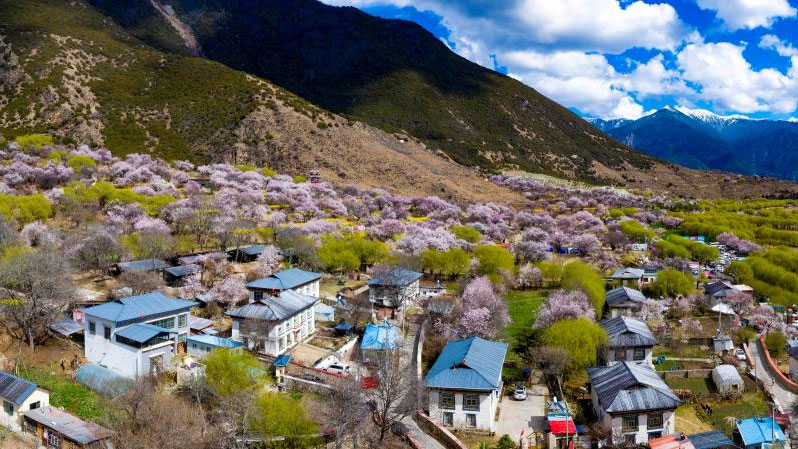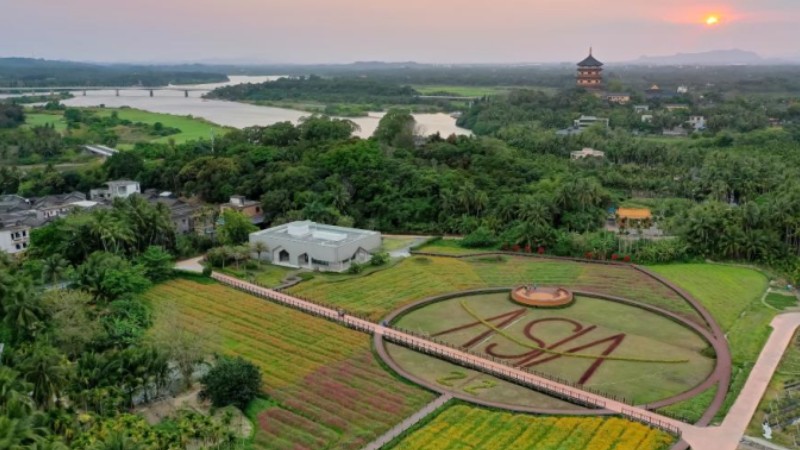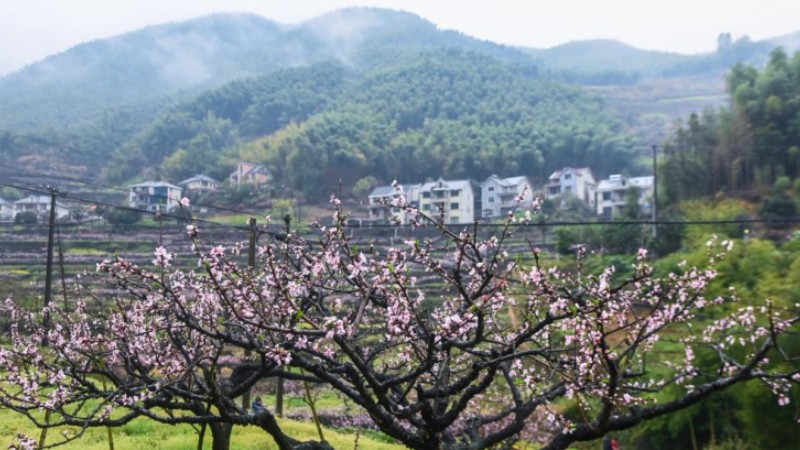Commentary: America's fake democracy
BEIJING, March 28 (Xinhua) -- In 2021, with the debut of its so-called Summit for Democracy, the United States attempted to fool the world but desperately failed. Now, the second episode is set to start.
For a country stuck in democratic disorder at home and obsessed with bullying abroad, the upcoming summit is bound to be another failure. The gathering will show how Washington manipulates democracy to stoke confrontation, divide the world and advance its hegemonic agenda.
The essence of democracy should ensure that the people are the masters of their country. But American democracy, designed to serve capitalist interest groups, is inherently incapable of prioritizing the majority's interests, thus degenerating into a "democracy for the few."
Little wonder the list of challenges troubling U.S. society is ever-growing. Aggravated political polarization, a widening wealth gap, growing social divides and deep-seated racial discrimination all have made the narrative of American democracy even less convincing. "A government of the people, by the people, for the people," the ideal democratic government of the United States depicted by then U.S. President Abraham Lincoln in his landmark Gettysburg Address, remains an illusion.
As money politics penetrate all aspects of U.S. elections, legislation and administration, American democracy is never "of the people" but a game for the rich. Under the slogan of "one man, one vote" is the reality that a handful of elites governs the country.
Data shows that candidates win 91 percent of congressional elections with greater financial support. Those so-called "representatives of public opinion" usually work for their donors after being elected instead of the public.
Joseph Stiglitz, Nobel Prize-winning economist, once observed that the top 1 percent of Americans control 40 percent of U.S. wealth. "Virtually all U.S. senators, and most of the representatives in the House, are members of the top 1 percent when they arrive, are kept in office by money from the top 1 percent, and know that if they serve the top 1 percent well they will be rewarded by the top 1 percent when they leave office," Stiglitz wrote in an article.
Meanwhile, the U.S. political system is hardly governed "by the people." Instead, the people are denied the power to participate in national governance. After elections, public power is hijacked by a few oligarchies while the people's needs ignored. The country's widespread gun problem and the tottering legislation procedures on issues related to people's livelihoods are reminders that partisan battles and veto politics don't bring good governance.
Princeton and Northwestern Universities compared nearly 1,800 U.S. policies enacted between 1981 and 2002 with the expressed preferences of average and affluent Americans and special interest groups. They concluded that "economic elites and organized groups representing business interests have substantial independent impacts on U.S. government policy, while mass-based interest groups and average citizens have little or no independent influence."
In his book The Power Elite, U.S. political sociologist C. Wright Mills expressed concern about the "revolving door" between the government and large corporations, as power elites cycle through economic, political and military spheres and form interwoven interests. No wonder former U.S. President Jimmy Carter said the United States functions more like an oligarchy than a democracy.
What's more, "for the people" is another lie. In a capital-based democracy, the people can't have their fair share of the fruits of national development, to which the growing gaps between the rich and poor and the widening class divide attest.
According to a report by the U.S. Federal Reserve, the total wealth of the wealthiest 1 percent reached a record 45.9 trillion U.S. dollars at the end of the fourth quarter of 2021, and their fortunes increased by more than 12 trillion dollars, or more than a third, during the pandemic. In contrast, the share of wealth held by the bottom 90 percent of Americans has declined since the pandemic.
More worryingly, the unfair economic distribution contributes to the concentration of political power. According to the Economist, rising inequality means that resources are concentrated in the hands of a few. "The evidence that concentrated wealth contributes to concentrated power is troubling. It suggests that reducing inequality becomes less likely even as it becomes more urgent. It implies that a vicious cycle of rising inequality may be developing, with a loss of democratic accountability as a nasty side-effect."
America's democratic system is only in form, not substance. Despite its inability to illuminate its own backyard, the self-branded "shining city on a hill" is under a delusion that it can shine its light on others. With such faulty logic, Washington has grown ever more addicted to lecturing other countries, peddling its false narrative of "democracy versus authoritarianism," and seeking to divide the world along a line based on U.S. self-interests.
What can we expect from the upcoming summit? Sadly, nothing more than a political farce and tool of geopolitical coercion.
Photos
Related Stories
- U.S. wantonly violates other countries' human rights, tramples on justice: report
- U.S. suffers historic retrogression in protecting rights of women, children: report
- American-style electoral democracy loses popular support: report
- U.S. civil rights protection system dysfunctional: report
- Heavy casualties feared in fire at Mexican immigration agency near U.S. border -- reports
Copyright © 2023 People's Daily Online. All Rights Reserved.









